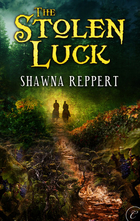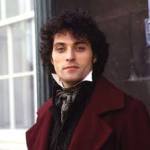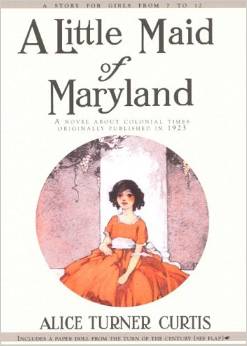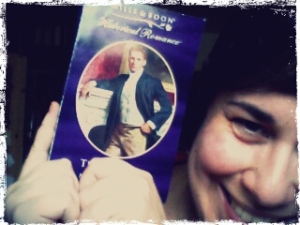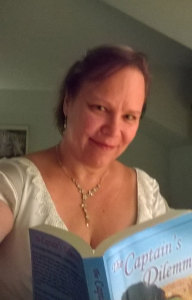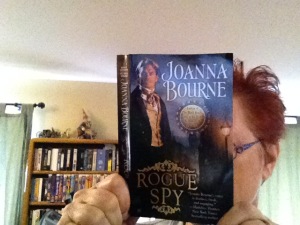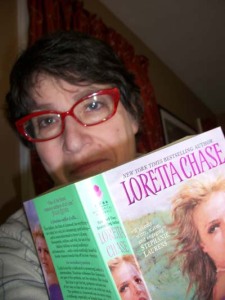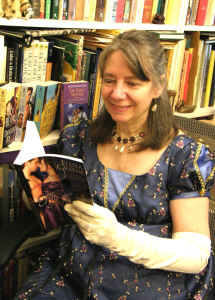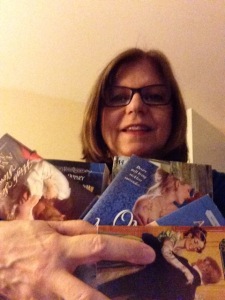This year I received NINE books to judge in RWA’s RITA contest. It appears, from online discussions, that people who are open to judging a broad range of categories can get swamped, as I have. Unless there are changes in how they do things, I may have to opt out of more categories next year, because this is going to be a challenge!
Anyway, judging the RITAs is always a mixed pleasure. Usually I find some new authors to follow, but almost always, I also run into books that use some tired old tropes I don’t see in my favorite authors’ books. Here are a few I’m braced to expect:
Tired Trope #1 – The Feisty Redhead
Red hair is gorgeous, and I understand why authors might use it in a symbolic sense, to connote passion (although I’d also argue that blondes and brunettes can be just as passionate). I do wonder about the idea that redheads are naturally short-tempered.
When I googled around, I found some historical background for this idea of the “fiery redhead” and also some articles suggesting that the gene that produces red hair may also cause an increased sensitivity to pain. So perhaps a redhead might react more strongly if one accidentally stepped on her toes? It still seems like a stretch to assume that redheads have a short fuse about everything. It’s not borne out by the ones I know. They aren’t wimps but also aren’t at all the sort to jump to erroneous conclusions or blow up at trifles.
The stories that really rub me the wrong way are the ones featuring a redheaded heroine who blows her top easily and a hero who somehow thinks this is cute. Taken to this extreme, it’s infantilizing women’s anger. I prefer to read about a heroine who can be angry with real reason and a hero who, even if he disagrees with her, will take her seriously.
Tired Trope #2 – The Rich, Handsome, Alpha Chauvinist
Sadly, in most of the batches of RITA books I’ve judged, there’s at least one book with a hero who crosses the line from alpha to abusive. He shows a consistent lack of respect for the heroine, disregards her ideas, needs and desires, and may judge her sexuality using a double standard.
In a historical romance, I can imagine a hero whose upbringing and experiences may not have prepared him for a heroine with untraditional abilities or strong passions. I still want him to be intelligent enough to recognize, accept and eventually be delighted by what he learns about her true nature.
However, I actually see as many or more chauvinistic heroes in contemporary romance. Seriously, have we not gotten past the modern hero who’s surprised when a heroine proves to be intelligent and competent? Or one who slut-shames her for having as strong a libido as his?
Even if there’s some good grovel at the end, I can’t believe in a happy ending for these couples. I see the heroine ending up in what amounts to a luxurious cage and the “hero” eventually replacing her with either a younger wife or a mistress, depending on the setting.
I want to read about a hero who loves the heroine in all her complexity. One who does not see her as a static, desirable object but a living woman, who will change and acquire new wisdom and power as she goes through various phases of her life. Because he loves her, he’ll be excited to be her companion for that journey.
What do you think? Are there other tropes you’d like to see retired?
Elena
www.elenagreene.com

